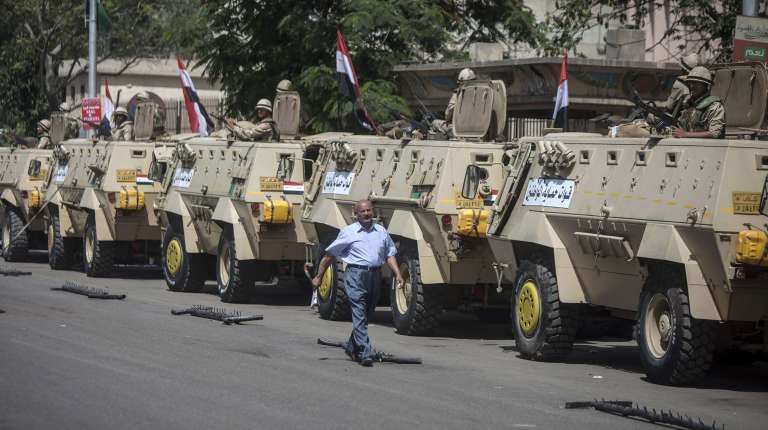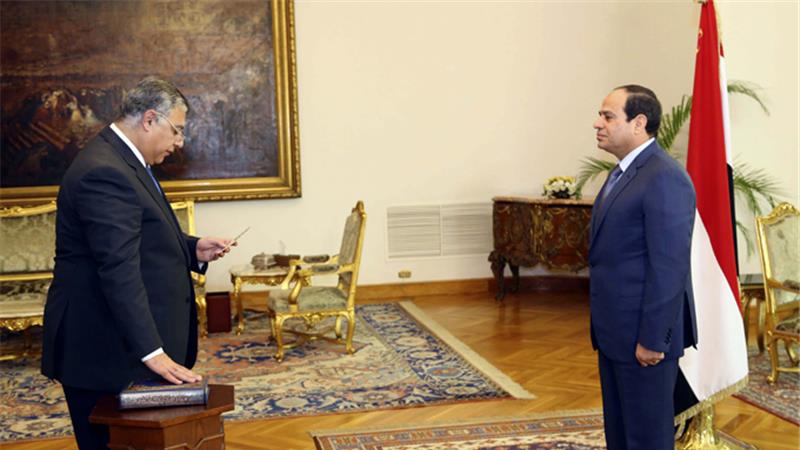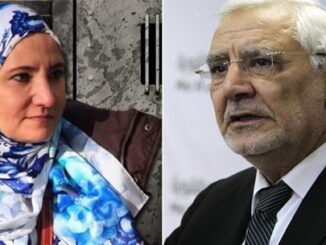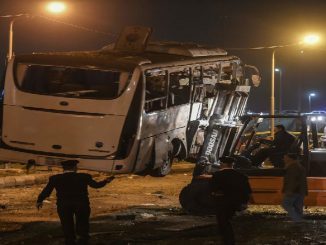
The Egyptian parliament has approved the extension of a law allowing the military to participate in protecting public facilities for five more years.
Late June the cabinet decided to extend cooperation between the police and the military in protecting the public and vital facilities for two years.
The current situation in Egypt necessitates an extension for a longer period of time, said Kamal Amer, the head of the defense and security committee at the House of Representatives.
Accordingly, there was unanimous approval to extend the application of the law for five years.
On October 27, 2014, Abdel Fattah al-Sisi issued a presidential decree allowing the military to assist police forces in the protection of public facilities. In addition, it opened the door for military trials for those accused of attacking such facilities.
The law was passed shortly after the death of at least 33 security personnel in a militant attack in Sinai in October 2014.
According to the law, all vital facilities are considered military facilities and they remain under the military protection. Any crimes related to these facilities fall within the responsibility of the military judiciary.
Human Rights Watch has previously stated in a report criticizing the law that it “vastly extended the reach of the country’s military courts and risks militarizing the prosecution of protesters and other government opponents.”
According to Sarah Leah Whitson, Middle East, and North Africa director at the organization the law is “[representing] another nail in the coffin of justice in Egypt.”
She said, “Its absurdly broad provisions mean that many more civilians who engage in protests can now expect to face trial before uniformed judges subject to the orders of their military superiors.”
Since the military coup in 2013,al-Sisi military regime tends to legalize the suppression of political opposition by issuing laws and decrees that all aim to end the freedom of speech and expression in Egypt.
As a result, thousands of civilians have been tried by the military courts, “Apparently unsatisfied with tens of thousands already detained and speedy mass trials that discarded due process in the name of national security, al-Sisi essentially gave free rein to military prosecutors,” said Nadim Houry, deputy Middle East and North Africa director in HRW report released in April 2016.
“He has handed back to the military judiciary the powerful role it enjoyed in the months after Egypt’s uprising when the nation was governed by a council of generals,” he said.
In fact, military trials have swept up at least 86 children, as well as students, professors, and activists, including individuals who were forcibly disappeared and allegedly tortured.
Military courts have handed down 21 death sentences since October 2014, though a lawyer with the Egyptian Coordination for Rights and Freedoms said that none have yet been approved by the Supreme Military Court of Appeals, according to HRW report.



